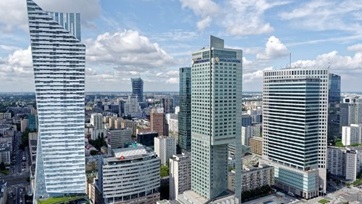Major fires in recent months in Mumbai high-rises—Kurla, Dadar and Malad to name only three—have led to the state government moving a new fire safety bill that has stringent regulations and a legal framework to punish violators. The bill moved in the state assembly on Tuesday has made a fire safety officer and a supervisor mandatory for buildings taller than 22 floors.
Under the provisions of the bill, such buildings—both residential and industrial with hazardous activities—will have to set up an IoT-enabled fire safety mechanism that includes round-the-clock monitoring of premises to watch for potential fire incidents as well as a bi-annual fire safety audit to assess preparedness. Violation of the new safety laws can invite imprisonment of up to three years and a penalty of up to ₹1 lakh.
The bill has been moved to amend the Maharashtra Fire Prevention and Life Safety Measures Act and bring it on the lines of the National Building Code (NBC) revised by the central government in 2016. It will provide a legal framework to the fire safety norms that are currently in place in Mumbai and a few other cities in the form of orders passed after the massive fire at Mantralaya that gutted three floors in 2012.
The bill also permits an increase in the height of educational institutions in the Mumbai Metropolitan Region and Pune Metropolitan Region from the current 30 metres to 45 metres (over 15 storeys). Automated parking lots too can now go up to 100 metres against the present 45 metres.
“Once the act comes into being, buildings and housing societies will have to mandatorily follow the norms,” said an official from the urban development department. “The IoT-enabled system will have to be monitored by the Building Management System (BMS) round the clock. The sensor-based system will monitor the water level in tanks, the condition of fire pumps near the water tank, the alarm system and sprinkler system among others. The fire brigade will get alerts about the lacunae and appropriate action will be taken against the societies.”
The officer, who is privy to the amendment, said that in Mumbai, the new Development Plan for the city has provisions for fire safety compliance for buildings above 32 meters. “They will now get a legal framework for action against violations,” he said. “Unlike in the present system, the enactment will give legal powers to the authorities to hold auditors and societies responsible.”
M V Deshmukh, former director and fire advisor to the Maharashtra government, said, “The NBC comprised guidelines with powers to the state government to tweak them as per their local requirements. As regards the increased height allowed to industrial and educational institutions, the government can make certain provisions to promote development without compromising public safety. Given the rising number of industrial establishments, Maharashtra has upped the height permissions without compromising on safety norms.”
Deshmukh was actively involved in the drafting of the then Fire Act bill and is a member of the standing committee of NBC and various other national and international standards development bodies.
Another official from the directorate of fire services said that like educational institutions, dedicated parking lots with zero human intervention have been given height relaxations. “A dedicated parking slot with an automated system will be given permission to go up to the height of the building against their dead wall or up to 100 metres. The restriction in the NBC is 45 metres. This has been incorporated to address the parking space crunch in big cities,” he said.
The bill is expected to be passed in the state legislature this week. Once approved by both houses, the amendment will come into force immediately. There will be no need for approval from the central government as the NBC already has the President’s assent.








